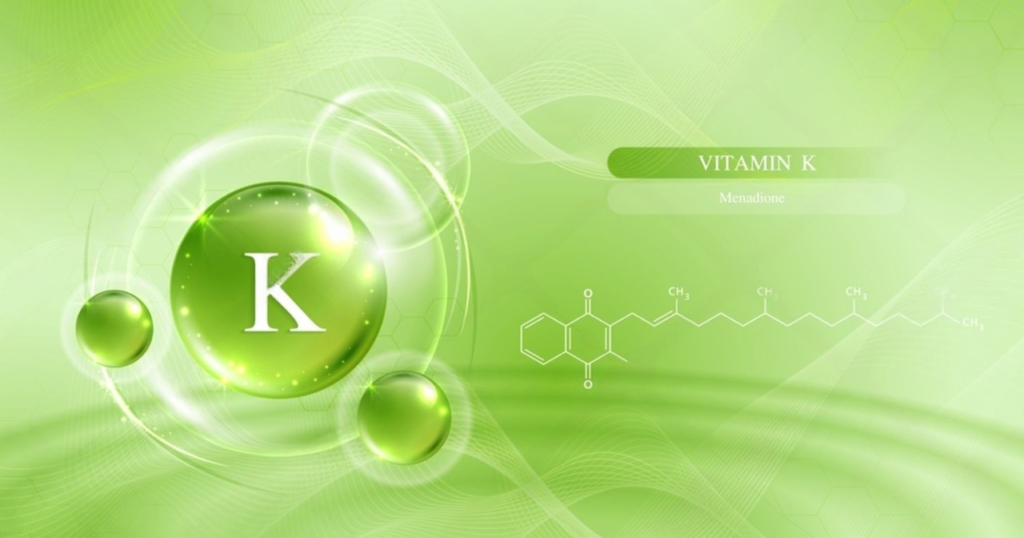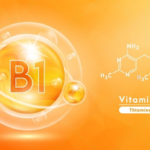Vitamin K might not get as much attention as other vitamins. But it is also a very important nutrient that plays a vital role in your health. It is a fat-soluble vitamin and essential for blood clotting, bone strength, and even heart health. Without this, your body can’t heal wounds properly and bones may weaken over time.
We will talk about this vitamin in detail. So, grab a cup of your favorite beverage or snacks and stay till the end. I hope you will get answers to your questions and like it.
Note: This is for educational purposes only. Consult a professional for medical advice or diagnosis. Thank you.
What Is Vitamin K?
Vitamin K is a fat-soluble nutrient. It is primarily responsible for activating proteins involved in blood clotting and bone metabolism. It is not a single entity, it comes in two main forms vitamin K1 (phylloquinone) and vitamin K2 (menaquinone). Both play unique roles in the body.
Vitamin K1 vs. Vitamin K2
It is found primarily in plant-based foods such as leafy green vegetables. It is activated in the liver for blood clotting.
On the other hand, vitamin K2 is found in animal and fermented foods. It is essential for bone and cardiovascular health. It is also produced by the gut bacteria. It is also known as “Menaquinone”. It can be further divided into subtypes, menaquinone-4 (MK-4) to menaquinone-13 (MK-13).
The Health Benefits of Vitamin K
Vitamin K isn’t just about preventing excessive bleeding, It offers several important health benefits.
Supports Blood Clotting
It is essential for producing a protein known as prothrombin. This protein is essential for blood clotting. Without it, even minor cuts can turn into serious problems.
Supports Bone Health
It plays a role in regulating calcium in the body and moving it into bones and teeth instead of soft tissues.
Supports Heart Health
Vitamin K2 plays role in keeping your heart and blood vessels in good condition by preventing calcium buildup in the arteries. It reduces the risk of heart disease and maintains proper blood circulation.
Boosts Brain Function
Emerging research suggests that it plays a role in cognitive functions. These functions include thinking, memory, learning, and organizing skills. In easy words it boosts brain health.
Morning Sickness
WebMD suggests that it may help reduce morning sickness.
Risk of Certain Cancers
It plays a role as an antioxidant. It protects cells from damage by free radicals. It may slow the growth of cancer cells, especially in liver and prostate cancer.
What are Food Sources of Vitamin K?
Excellent sources (High in Vitamin K)
Leafy green vegetables
- Spinach
- Kale
- Collard greens
- Turnip greens
- Mustard greens
- Beet greens
- Swiss chard
Other vegetables
- Broccoli
- Brussels sprouts
- Cabbage
- Lettuce
Natto:
A traditional Japanese food is made from fermented soybeans. It is rich in vitamin K2.
Good Sources (Moderate Amounts of Vitamin K):
- Vegetable Oils
- Meat, Cheese, and Eggs
- Fish: Some fish, like salmon
- Dairy Products
- Asparagus
- Avocado
- Kiwi
- Blueberries
- Prunes
- Chicken
Symptoms of Lack of Vitamin K
Deficiency of this vitamin is very rare in people. But if you have any health conditions or not getting enough amounts from foods. While the symptoms are the following:
- Easy bruising
- Excessive bleeding from cuts or injuries
- Heavy menstrual bleeding
- Weak bones
- Increased risk of heart disease
Who Is at Risk of Vitamin K Deficiency?
Newborn Babies:
Lack of Vitamin K at Birth:
The placenta does not transfer this vitamin well, and breast milk contains only small amounts, leading to low levels in newborns.
Immature Liver:
The newborn liver is immature with respect to prothrombin synthesis, further increasing the risk.
Sterile Gut:
The neonatal gut is sterile during the first few days of life, and the bacteria that produce K vitamin haven’t yet established themselves.
Exclusively Breastfed Infants:
Breast milk has a lower concentration of this vitamin compared to cow’s milk, and exclusively breastfed infants are at higher risk if they don’t receive an injection K vitamin at birth.
Infants of Mothers Taking Certain Medications:
Medications like isoniazid or those used to treat seizures can interfere with how the body uses K vitamin.
Other Groups at Risk:
Individuals with Malabsorption Disorders:
Conditions like celiac disease, cystic fibrosis, or liver disease can impair the absorption of this vitamin from food.
People Taking Certain Medications:
- Anticoagulants: Warfarin (Coumadin) and similar anticoagulants can interfere with K vitamin metabolism.
- Antibiotics: Long-term antibiotic use can disrupt the gut bacteria that produce K vitamin.
Individuals with Pancreatic Insufficiency:
Pancreatic insufficiency, a condition associated with cystic fibrosis, can lead to malabsorption of fat-soluble vitamins, including K vitamin.
Those with Intestinal or Biliary Tract Disorders:
Conditions affecting the liver, gallbladder, and bile ducts can impair fat absorption and, consequently, K vitamin absorption.
Individuals who have had part of their intestine removed:
This can lead to malabsorption of nutrients, including K vitamin.
How Much Vitamin K Do You Need?
The recommended daily intake (RDI) varies by many factors such as age, gender, and any health issue:
- Men: 120 mcg per day
- Women: 90 mcg per day
Most people get enough vitamin K from their diet. But certain health conditions may increase the need for supplements.
Vitamin K Supplements: Do You Need Them?
For most people, a well-balanced diet provides enough vitamin K. However, if you have a deficiency or specific health concerns, a supplement may be necessary. Always consult with a healthcare provider before starting one.
Potential Side Effects and Interactions
K vitamin is generally safe, but it can interact with certain medications, such as:
- Blood thinners (e.g., Warfarin): High intake can counteract their effects.
- Antibiotics: Long-term use may reduce levels.
- Cholesterol-lowering drugs: These can interfere with absorption.
Conclusion
Vitamin K is a powerful nutrient that plays a vital role in blood clotting, bone strength, and heart health. While deficiency is rare, ensuring an adequate intake from foods like leafy greens and fermented products can provide immense health benefits. If you’re at risk of deficiency, consider discussing supplements with your doctor. Prioritizing K vitamin in your diet is a simple yet effective way to support long-term wellness.
FAQs
1. Can I get enough vitamin K from my diet alone?
Yes! Eating leafy greens, dairy, and fermented foods should provide enough amounts for most people.
2. Is vitamin K2 better than K1?
Not necessarily. Both forms serve different purposes—K1 is vital for blood clotting, while K2 supports bone and heart health.
3. Can too much vitamin K be harmful?
There’s no known toxicity from high dietary intake of K vitamin, but excessive supplementation may interfere with medications like blood thinners.
4. Do newborns need extra vitamin K?
Yes. Newborns receive a it shot at birth to prevent bleeding disorders since they are born with low levels of K vitamin.
5. How does vitamin K affect bone health?
It helps regulate calcium in the body, ensuring that it strengthens bones instead of accumulation in the arteries.



